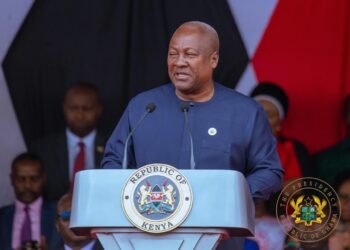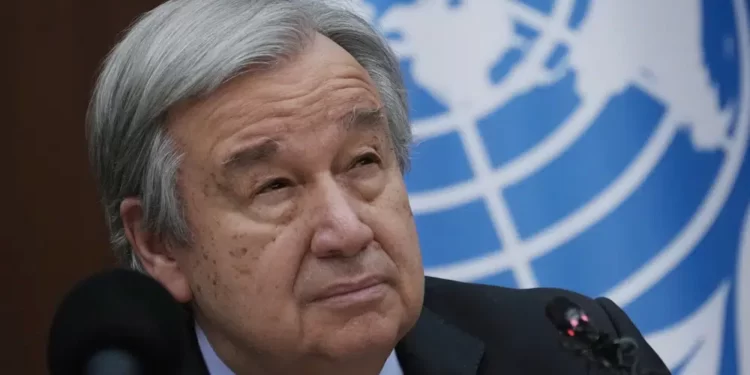The earth is literally all that humans have, hence, the predominant need to be mindful of how both citizens and countries alike mete out certain treatments.
Yes, from all indications, the world has changed tremendously and for all the wrong reasons. The Arctic ice melting is a serious consequence of climate change caused by greenhouse gas, setting in motion other negative impact.
Droughts being experienced in hitherto fruitful and abundant soil, erratic flooding and rainfall patterns, are just the little displeasure the earth is unraveling over the destructive element from mankind and their activities.
Undoubtedly, there are many activism on climate change, although much hasn’t been seemingly done about it. The voices of activists advocating for better treatment of the planet have been met with vain promises from global leaders year after year, especially with their promises of climate financing and reducing emissions which disrupts the natural environment and order of things.
At COP 21 in Paris, on 12th December 2015, Parties to the UNFCCC, reached a landmark agreement to combat climate change by pursuing efforts to limit global temperature increases as close as possible to 1.5 degrees Celsius. Eight years down the line the world continues to grapple with the devastating effects of climate change.
As Ghana concludes its participation in the 28th session of the United Nations Climate Change Conference, known as COP28, the Minister for Lands and Natural Resources, Samuel A. Jinapor, MP, emphasized the need for global leaders to take decisive, urgent, and crucial measures in addressing the repercussions of climate change.
Addressing a team of local and international press, the lands minister stressed the need for the leaders to demonstrate their commitment to the fight against climate change by acting on the agreements, promises and resolves reached at COP28, hosted by the UAE.
Mr Jinapor warned of the ruinous impact of climate change already being felt across the globe and cautioned them on the risk of total capitulation if global leaders do not back their promises with actions.
“The world is witnessing the relentless and devastating impacts of climate change. We cannot ignore the dire consequences we have experienced, the tragedies that have befallen us, and the challenges that lie ahead.
“We have seen seasons of droughts, woes of intense flooding, prolonged hunger, and the emergence of diseases, including the unprecedented COVID-19 pandemic. These are just a few among the myriad of challenges we face as a result of climate change.”
Samuel Jinapor
Resolving climate change challenges
Furthermore, Mr Jinapor bemoaned two years of the Paris Agreement which is a legally binding international treaty on climate change adopted by 196 Parties at the UN Climate Change Conference (COP21) in Paris, France, on 12th December 2015, emphasizing that the world appears to be regressing when it comes to climate change crisis and its impact.
Additionally, he reminded the world once again that the forest and nature-based approach which is the policy direction being championed by the government of Ghana is the most ideal and globally accepted method of dealing with climate change crisis.
Without mincing words, the Forests and Land-use sector has been globally recognized by the Intergovernmental Panel on Climate Change (IPCC) as a significant contributor of nature-based solutions to help attain the 1.5 degrees target under the Paris Agreement.
As such, actions such as protecting natural ecosystems from loss and degradation, restoring ecosystems that have been degraded, and sustainably managing working lands can contribute significantly in mitigating climate change and in reaching the Paris Agreement role of keeping global warming below1.5°C.
As Ghana works in its way to stem the tide of climate change impact, there is the need for global leaders and stakeholders to commit finance towards nature-based solutions to resonate tangible outcomes.
Moreover, countries which emit more greenhouse gases must scale-up nature-based solutions to protect and restore forests to achieve a 1.5 degrees Celsius world.
Indeed, deforestation is changing the climate, harming people and the natural world and there is the need to reverse the trend and act now.
READ ALSO: NCA Urged To Collaborate with ORC For Early Detection Of Companies Venturing Into ICT






















